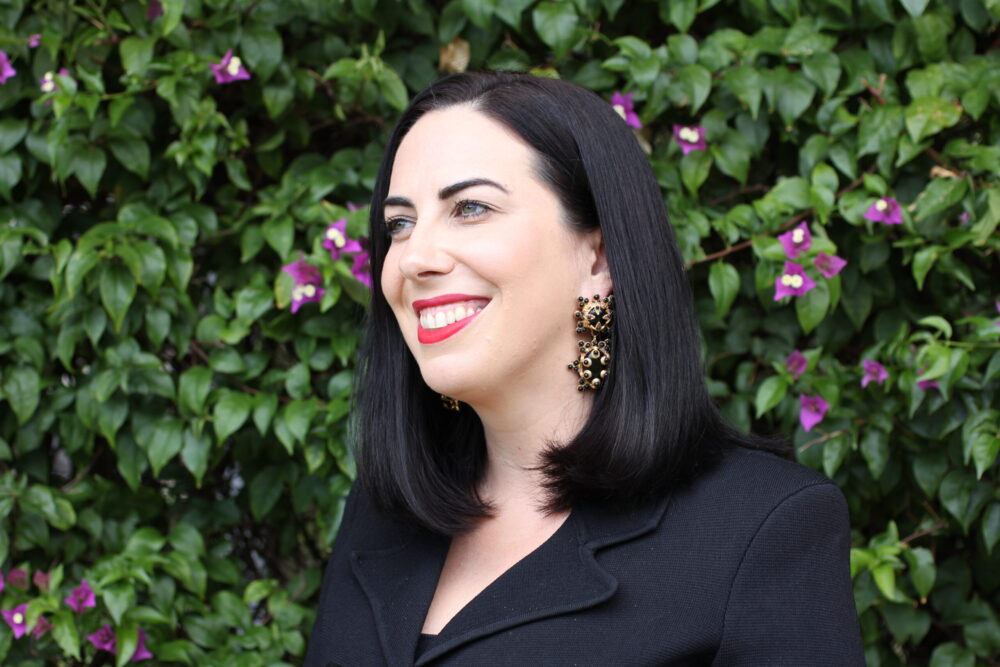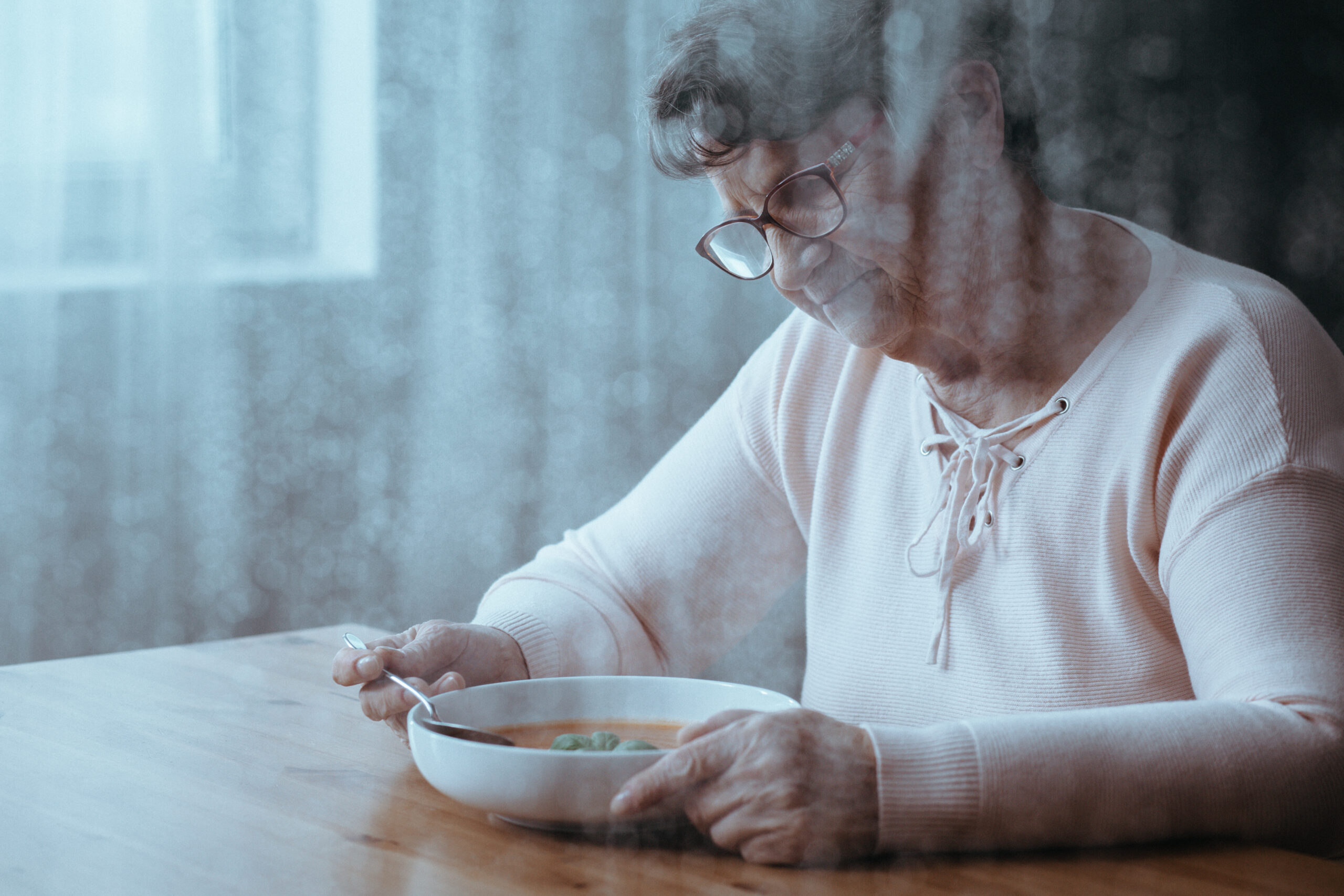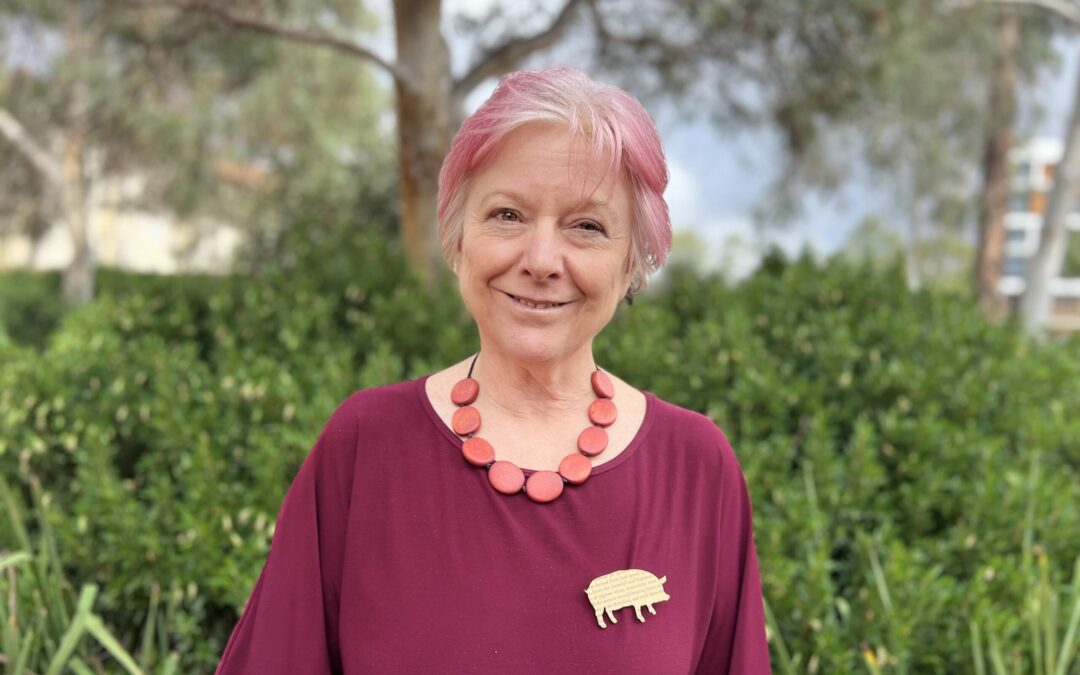Sarah Holland-Batt’s poetry collection The Jaguar won the 2023 Stella Prize for Australian women’s and non-binary writers’ work. It’s an extraordinary and unexpected collection of poems, which confronts what it means to be mortal in an astonishing and deeply humane portrait of a father’s Parkinson’s Disease, and a daughter forged by grief.
BroadAgenda editor, Ginger Gorman, had a chat with Sarah about her award-winning work.
Congratulations on this extraordinary achievement. As writers, we never know if anyone will read or appreciate our work. How did you feel when you found out you’d won the Stella Prize?
Really delighted and so surprised. I think I’m still taking it in, to be honest. It’s a huge honour, of course, and it also means that so many people who might not otherwise encounter my writing will have the opportunity to read it, which is an extraordinary gift.
The Stella Prize has done so much to change the reception of women’s writing in this country, and to shift our literary culture in general, so it’s particularly lovely to be recognised by a prize driven by such laudable ideals.
The Jaguar is about your relationship with your late father, who suffered from Parkinson’s disease. Why did you decide to write about this topic?
Often writers don’t get to choose their material; life gives it to us.
Watching my father’s trajectory with Parkinson’s, particularly towards the end of his life, was one of the most profound and moving experiences of my life: challenging and tragic at times, but also poignant and deeply beautiful too.
Many of the experiences were so striking and insistent in my imagination that I felt compelled to write about them.
This isn’t a topic one might traditionally associate with poetry…What inkling inside you made you think it WAS?
Much of the greatest poetry through history has been, in various ways, about reconciling with our mortal nature, and accepting that one day we will die. So I’m not breaking new ground in that sense; my work is part of a long conversation that is as old as poetry itself. But I hadn’t read very much poetry about the frailty of the parent, which I think is a particularly acute and at times challenging thing to witness.
Our parents are the bedrock on which our own adult selves are built, generally speaking; to watch them change and become vulnerable and in need of our own care is intense and profound, but it’s also not a topic we speak much about openly or freely.
There are so many taboos still remaining about ageing, and such stigma about neurodegenerative diseases like Parkinson’s and dementia. Poetry seemed to me to be a good form—short, intense, with the capacity to move through space and time and draw together disparate images and ideas—though which to explore this complex terrain, and hopefully open up that conversation.
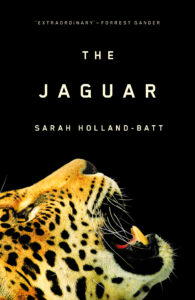
Cover of Sarah Holland-Batt’s book, ‘The Jaguar’ (2022). Picture: Supplied
What does the book say about caring roles in our society?
I don’t write didactic or activist poetry, so the poems don’t tell the reader what to think about caring, per se. But I hope the poems encourage the reader to imagine themselves in those scenes, to see the dignity and humanity of older people, and to think about what it means to die and to care and to love for someone who is dependant or vulnerable.
The poems contemplate those questions through quite a specific portrait of my father and my relationship to him—but hopefully they also open a window out to others who have had, or may, have similar experiences.
Why did you infuse the book with such a sense of beauty and wonder – especially in your images of nature?
I think we are often so afraid of death that we refuse to see dying as part of living—or to admit that death and dying can be both confronting and difficult but also, at times, beautiful.
This societal denial of our animal natures, and of our position as mortal animals, means that we refuse to imagine ourselves as ever becoming old, or conceding that death will happen for all of us, or to even conceded that death is part of what gives our lives meaning.
The imagery I draw on—especially imagery of the natural world—invites the reader to consider how humans are animal, and how death and dying are natural, and at times, mysterious and deeply beautiful phenomena.
What questions were you trying to ask – and perhaps answer – about living, dying and mortality, frailty and vulnerability?
I was interested in the question of why it is that we are so frightened to look at ageing, at cognitive decline and vulnerability, and of what sort of beauty and meaning we might be missing by averting our gaze from these subjects. These poems are a form of insistence: insisting on looking when looking is difficult.
What kind of picture were you trying to paint of your dad? (It must be bitter sweet now he’s no longer with you. How do you think he would have responded to the news?)
My father was brilliant, generous and kind, and a phenomenal intellectual mentor to me when I was young, but he was also complex and difficult in certain ways, like any human being. It was important to me that the poems captured the complexity of his character, rather than sentimentalising or simplifying him in retrospect. The poems delve into the personality changes he experienced alongside his Parkinson’s, and track the changing nature of our relationship. I hope they hold those complexities in balance.
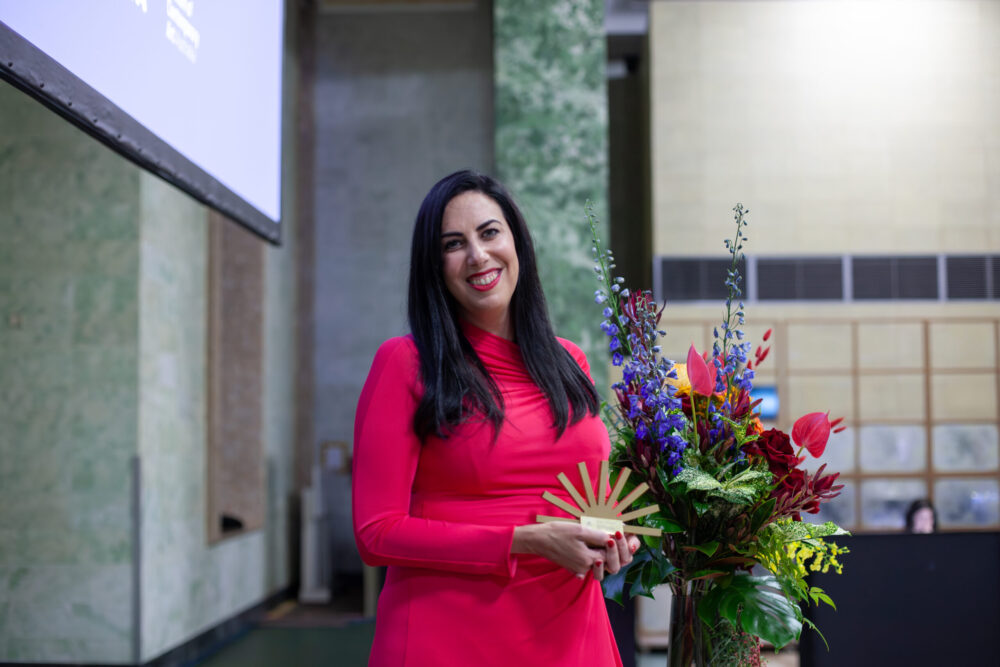
Sarah Holland-Batt winning the 2023 Stella Prize. Picture: Supplied
Ginger Gorman is a fearless and multi award-winning social justice journalist and feminist. Ginger’s bestselling book, Troll Hunting, came out in 2019. Since then, she’s been in demand both nationally and globally as an expert on cyberhate and the real-life harm predator trolling can do. She's also the editor of BroadAgenda and gender editor at HerCanberra. Ginger hosts the popular "Seriously Social" podcast for the Academy of the Social Sciences in Australia. Follow her on Twitter.
